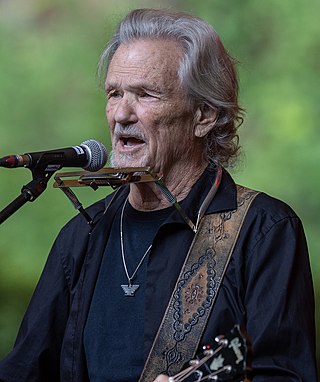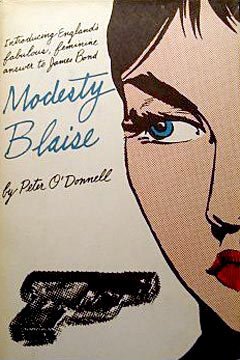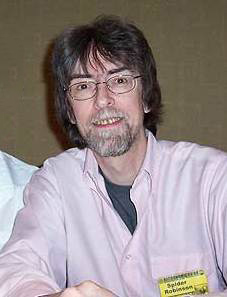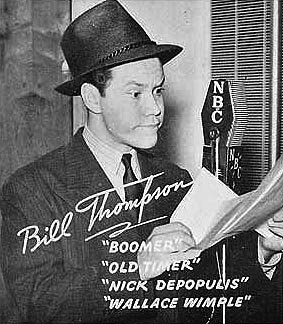Related Research Articles

The Four Horsemen of the Apocalypse are figures in the Book of Revelation in the New Testament of the Bible, a piece of apocalypse literature attributed to John of Patmos. Similar allusions are contained in the Old Testament books of Ezekiel and Zechariah, written about six centuries prior. Though the text only provides a name for the fourth horseman, subsequent commentary often identifies them as personifications of Conquest (Zelos), War (Martius), Famine (Limos), and Death.

Fibber McGee and Molly (1935–1959) was a longtime husband-and-wife team radio comedy program.

Willie Hugh Nelson is an American country singer, guitarist and songwriter. He was one of the main figures of the outlaw country subgenre that developed in the late 1960s as a reaction to the conservative restrictions of the Nashville sound. The critical success of his album Shotgun Willie (1973), combined with the critical and commercial success of Red Headed Stranger (1975) and Stardust (1978), made Nelson one of the most recognized artists in country music. Nelson has acted in over 30 films, co-authored several books, and has been involved in activism for the use of biofuels and the legalization of marijuana.

Kristoffer Kristofferson is an American retired country singer, songwriter and actor. Among his songwriting credits are "Me and Bobby McGee", "For the Good Times", "Sunday Mornin' Comin' Down", and "Help Me Make It Through the Night", all of which were hits for other artists.

Maurice Ernest Gibb was a British musician and songwriter. He achieved worldwide fame as a member of the pop group Bee Gees. Although his elder brother Barry Gibb and twin brother Robin Gibb were the group's main lead singers, most of their albums included at least one or two songs featuring Maurice's lead vocals, including "Lay It on Me", "Country Woman" and "On Time". The Bee Gees are one of the most successful pop-rock groups of all time.

William Henry Mauldin was an American editorial cartoonist who won two Pulitzer Prizes for his work. He was most famous for his World War II cartoons depicting American soldiers, as represented by the archetypal characters Willie and Joe, two weary and bedraggled infantry troopers who stoically endure the difficulties and dangers of duty in the field. His cartoons were popular with soldiers throughout Europe, and with civilians in the United States as well. However, his second Pulitzer Prize was for a cartoon published in 1958, and possibly his best-known cartoon was after the Kennedy assassination.

Modesty Blaise is a British comic strip featuring a fictional character of the same name, created by author Peter O'Donnell and illustrator Jim Holdaway in 1963. The strip follows Modesty Blaise, an exceptional young woman with many talents and a criminal past, and her trusty sidekick Willie Garvin. It was adapted into films in 1966, 1982, and 2003, and from 1965 onwards, 11 novels and two short-story collections were written.

Red Headed Stranger is the eighteenth studio album by American outlaw country singer Willie Nelson, released in 1975. Following the success of his recordings with Atlantic Records, coupled with the negotiating skills of his manager, Neil Reshen, Nelson signed a contract with Columbia Records, the label that gave him total creative control over his works. The concept for the album was inspired by the "Tale of the Red Headed Stranger", a song that Nelson used to play as a disc jockey on his program in Fort Worth, Texas. After signing with Columbia, he decided to record the song, and arranged the details during his return to Austin, Texas, from a trip to Colorado. It was recorded at low cost at Autumn Sound Studios in Garland, Texas. The songs featured sparse arrangements, largely limited to Nelson's guitar, piano, and drums. Nelson presented the finished material to Columbia executives, who were dubious about releasing an album that they at first thought was a demo. However, Nelson had creative control, so no further production was added.

Spider Robinson is an American-born Canadian science fiction author. He has won a number of awards for his hard science fiction and humorous stories, including the Hugo Award 1977 and 1983, and another Hugo with his co-author and wife Jeanne Robinson in 1978.

Albert W. Hall is an American actor. He portrayed Chief Phillips in the 1979 war film Apocalypse Now and Judge Seymore Walsh in Ally McBeal and The Practice. He also played Brother Baines in the 1992 Spike Lee film Malcolm X.

Apocalypse is a supervillain appearing in American comic books published by Marvel Comics. He is one of the world's first mutants, and was a principal villain for the original X-Factor team and later the X-Men and related spin-off teams. Created by writer Louise Simonson and artist Jackson Guice, Apocalypse first appeared in X-Factor #5. Apocalypse is one of the most powerful beings in the Marvel Universe where he is the husband of Genesis and the father of the original incarnation of the Horsemen of Apocalypse.

"Me and Bobby McGee" is a song written by American singer-songwriter Kris Kristofferson and originally performed by Roger Miller. Fred Foster shares the writing credit, as Kristofferson wrote the song based on a suggestion from Foster. A posthumously released version by Janis Joplin topped the Billboard Hot 100 in 1971, making the song the second posthumously released No. 1 single in U.S. chart history after "(Sittin' On) The Dock of the Bay" by Otis Redding. Gordon Lightfoot released a version that reached number 1 on the Canadian country charts in 1970. Jerry Lee Lewis released a version that was number 1 on the country charts in December 1971/January 1972 as the "B" side of "Would You Take Another Chance on Me". Billboard ranked Joplin's version as the No. 11 song for 1971.
William Weaks Morris was an American writer and editor born in Jackson, Mississippi, though his family later moved to Yazoo City, Mississippi, which he immortalized in his works of prose. Morris' trademark was his lyrical prose style and reflections on the American South, particularly the Mississippi Delta. In 1967 he became the youngest editor of Harper's Magazine. He wrote several works of fiction and nonfiction, including his seminal book North Toward Home, as well as My Dog Skip.

William H. Thompson, known professionally as Bill Thompson, was an American radio personality and voice actor, whose career stretched from the 1930s until his death. He was a featured comedian playing multiple roles on the Fibber McGee and Molly radio series, and was the voice of Droopy in most of the Metro-Goldwyn-Mayer cartoon studio theatrical cartoons from 1943 to 1958.
Andrew Paul Sandoval is an American, best known as a Grammy Award nominated reissuer and compiler and engineer of historical albums, containing popular music from the rock era. Additionally, Sandoval has ongoing careers as author, DJ, journalist, songwriter and professional musician. Born in Santa Monica, California, his career in music began in 1986 as the editor and publisher of a fanzine called New Breed, a project that blossomed into work as a reissue director for such labels as Rhino and PolyGram. His writing has appeared in the form of liner notes to record and CD releases, as well as in articles featured in The Hollywood Reporter and Shindig!

Living Eyes is the sixteenth studio album by the Bee Gees, released in 1981. It was the band's final album on RSO Records, which would be absorbed into Polydor and subsequently discontinued. The album showcased a soft rock sound that contrasted with their disco and R&B material of the mid-to-late 1970s; having become a prominent target of the popular backlash against disco, the Bee Gees were pressured to publicly disassociate from the genre.

Willie McGee was an African American man from Laurel, Mississippi, who was sentenced to death in 1945 and executed on Tuesday, May 8, 1951, after being controversially convicted for the rape of a white woman on November 2, 1945. McGee's legal case became a cause célèbre that attracted worldwide attention, as it was roundly decried as a miscarriage of justice in the Jim Crow south.

A Sick Day for Amos McGee is a 2010 children's picture book written by Philip C. Stead and was illustrated by Erin E. Stead. The book, published by Roaring Brook Press, depicts a zookeeper who has bonded with the animals he cares for and who come and visit him one day when he gets sick. Phillip Stead wrote the book hoping his wife Erin would illustrate it after a period where she had become discouraged with her art. The book was well reviewed, and Erin won the 2011 Caldecott Medal for her illustrations. The book received praise for its woodblock illustrations and for its message about what friends will do to help and support each other.

Willie Jess Robertson is an American TV personality, businessman, author and news contributor. He is best known for his appearances on the reality TV series Duck Dynasty on A&E, and is the current CEO of the company Duck Commander. Robertson lives in West Monroe, Louisiana, with his wife Korie and his children: John Luke, Sadie, Will, Rowdy, Bella, and Rebecca.
Karen Lam is a Canadian director, writer and producer. She is known for the horror film Evangeline (2013).
References
- ↑ "Apocalypse Pretty Soon". Amazon.com/W. W. Norton. 1999-01-01. Retrieved 2010-04-10.
- ↑ "The Eyes of Willie McGee". Harper. 2010.